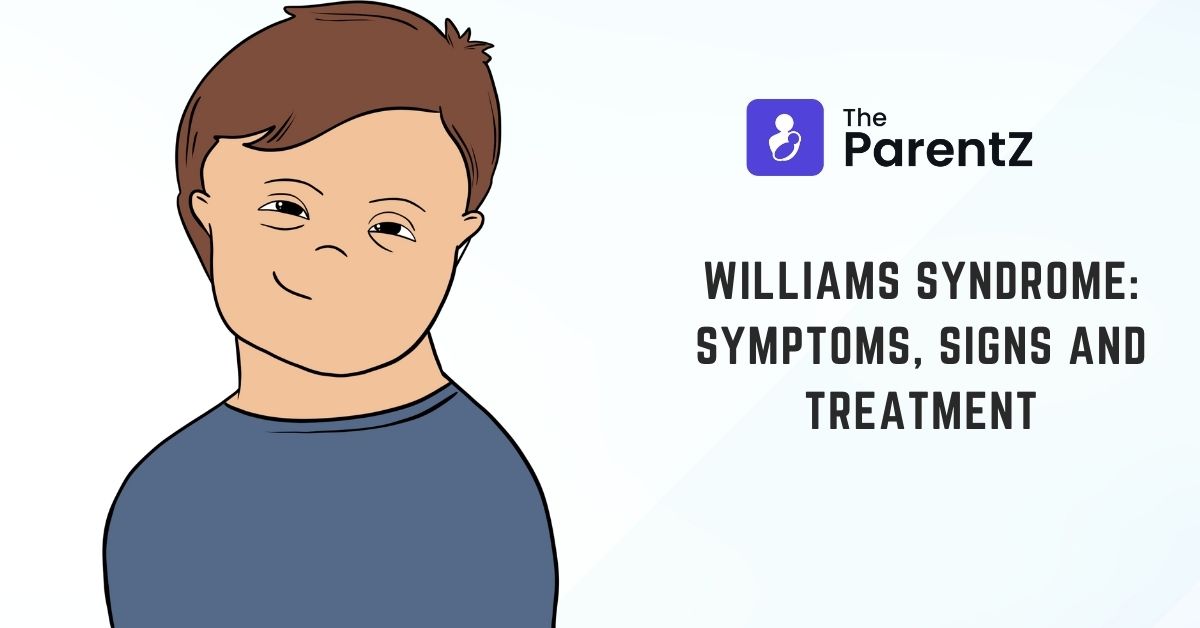What is Williams Syndrome?
Williams syndrome is a genetic disorder which leads to developmental delays. Williams Syndrome develops due to deletion of a part of chromosome 7. The quantity of deletion leads to the number of symptoms. More deletion means severe symptoms and vice versa. The deletion occurs as a chance. Children with Williams Syndrome may have learning problems along with heart and blood vessel problems. At the same time, these children are usually good with verbal skills,friendly, social, and enjoy music.
What are the signs and symptoms of William syndrome?
The distinctive physical features of a child with William syndrome are:
- The baby has a broad forehead
- The nose of the child is short and upturned
- The iris of the eye can show an abnormal pattern
- The mouth is wide
- The chin is small
- The teeth show distinct features. They may be small, widely spaced, crooked or missing.
- The muscle tone of the child is low
- The joints are more flexible than normal
- The voice is low or hoarse
- Developmental delays may be obvious by the age of 2 years.
- The social skills of the child are unusual in the sense that they might make other people uncomfortable. The child may prolong eye contact and have little to no fear of strangers.
What complications can develop with William syndrome?
Physical complications can develop in children with Williams Syndrome as the deleted gene is responsible for production of elastin which is now absent in the body.
- The arteries become weak and narrow.
- Supravalvular aortic stenosis (SVAS) may develop over time. This can lead to shortness of breath, chest pain which is followed by heart failure.
- Sometimes the child may have a blocked tear duct.
- Strabismus may develop in the eye.
- High blood pressure can develop.
- Hypercalcemia may be detected in the body
- Ear infections are more frequently present.
How is Williams Syndrome treated?
The treatment of Williams Syndrome is not absolute. It focuses on managing the symptoms of your child. Since Williams Syndrome affects a number of organs in the body, your child may need help from a team of specialists including:
- ophthalmologist for the eyes
- audiologist for hearing assessment
- otolaryngologist for problems related to the ear, nose, throat
- genetics specialist
- cardiologist for heart issues
- gastroenterologist for problems of gastrointestinal tract
- endocrinologist for hormone balance
- nephrologist for function of kidneys
- behavioural and developmental psychologist
You should try to make sure that the child is being treated in a clinic devoted to children with Williams Syndrome or atleast by expert paediatric specialists.
What should I know as a parent?
- There is no definitive cure for Williams syndrome but treatment can help with many problems.
- Early diagnosis and proper treatment can prevent complications or help catch them early and manage them accordingly when need be.
- You should take your child to speech, development and occupational therapists.
- Children with Williams often have a problem with numbers and maths.
- They may also have a problem with spatial concepts, being unable to draw.
- Language skills are initially a problem but with proper therapy and treatment, your child may achieve average skills.
- Your child may show a typical Williams personality – be talkative but not have many friends, be socially uninhibited and enjoy music related activities.
- Your child may have obesity or diabetes as a common related problem. You can prevent this with a proper lifestyle and diet.
- Your child may become partially independent in the future, have a simple job but will always require some assistance for basic day to day activities well into adulthood.








Be the first one to comment on this story.